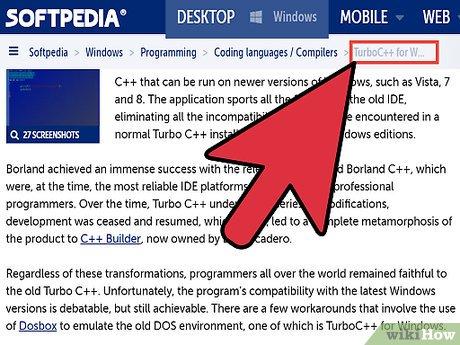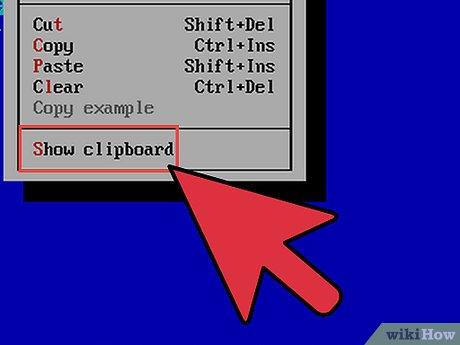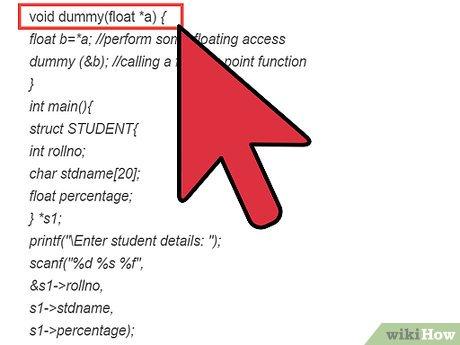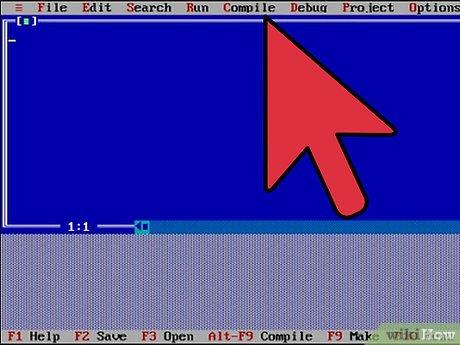
How to Fix 'Floating Point Formats Not Linked' Error in Turbo C/ Borland C
by
Tomasz David
Analyze the following program listing and after successful building of the program, the above mentioned run-time error appears.

Program listing one below.int main() {struct STUDENT{int rollno;char stdname[20];float percentage;} *s1;printf('Enter student details: ');scanf('%d %s %f',&s1->rollno,s1->stdname,&s1->percentage);printf('
The entered details are: ');printf('Roll: %d, Name: %s, Percentage: %f ',s1->rollno,s1->stdname,s1->percentage);getch();return 0;}The above C program is written and compiled in Turbo C. When this program is executed, the compiler displays the following error,Scanf: floating point formats not linked and the program gets terminated abnormally.This happens because of the variable *s1, which is a pointer to the structure 'STUDENT', in which programmer had defined a 'float' variable named 'percentage'. It means an error was found when the program tried to read a value for float data type using a pointer to structure. When the program is executed, the compiler, displayed a runtime error at the line scanf ('%f', ... %s1->percentage).It can happen when we use Borland C/ C++ or TurboC/C ++ as compiler. 'Floating point formats not linked' is a Borland runtime error (Borland C or C++, Turbo C or C++). Borland's compilers do not link in the floating-point (f-p) library unless we need it. Therefore, by force we need to add any floating-point (f-p) function when we have '%f' or other floating point (f-p) formats in scanf() or printf() calls.WH.performance.mark('step1_rendered');
Program listing one below.

To fix this error, call a floating-point (f-p) function or just add link of a file, which contains at least one floating-point (f-p) function. To do this, a hackish solution could be to define a dummy function somewhere in a source file but don't call it:void dummy(float *a) {float b=*a; //perform some floating accessdummy (&b); //calling a floating point function}It doesn't have to be in a module with the main program, as long as it's in a module that will be included in the link. Therefore, the above program should be written as follows:
To fix this error, call a floating-point (f-p) function or just add link of a file, which contains at least one floating-point (f-p) function.

Program listing two below.void dummy(float *a) {float b=*a; //perform some floating accessdummy (&b); //calling a floating point function}int main(){struct STUDENT{int rollno;char stdname[20];float percentage;} *s1;printf('Enter student details: ');scanf('%d %s %f',&s1->rollno,s1->stdname,s1->percentage);printf('
The entered details are: ');printf('Roll: %d, Name: %s, Percentage: %f ',s1->rollno,s1->stdname,s1->percentage)getch();return 0;}In the above program, 'dummy' is a user-defined function. You may give any name to this function instead of 'dummy'. Similarly, 'a' and 'b' are variable names, which you may change.This is because Turbo and Borland C/ C++ compilers sometimes leave out floating point support and use non-floating-point version of printf and scanf to save space on smaller systems. The dummy call to a floating-point function will force the compiler to load the floating-point support and solve the original problem.
Program listing two below.

A cleaner option is to enable floating point library linking in Turbo C/ C++ or Borland C/ C++ from linker options for library to include floating point.
A cleaner option is to enable floating point library linking in Turbo C/ C++ or Borland C/ C++ from linker options for library to include floating point.
Leave a Comment